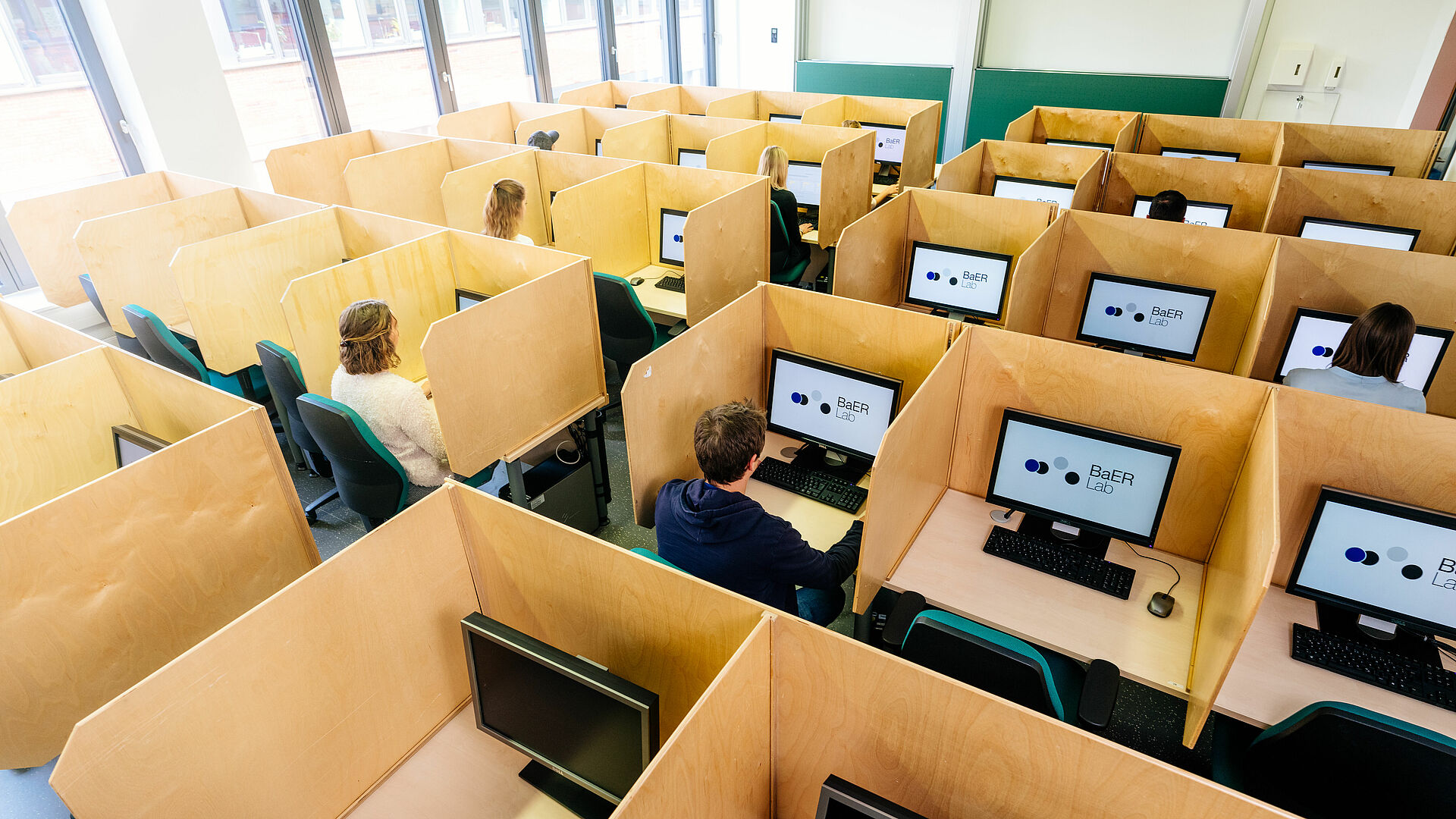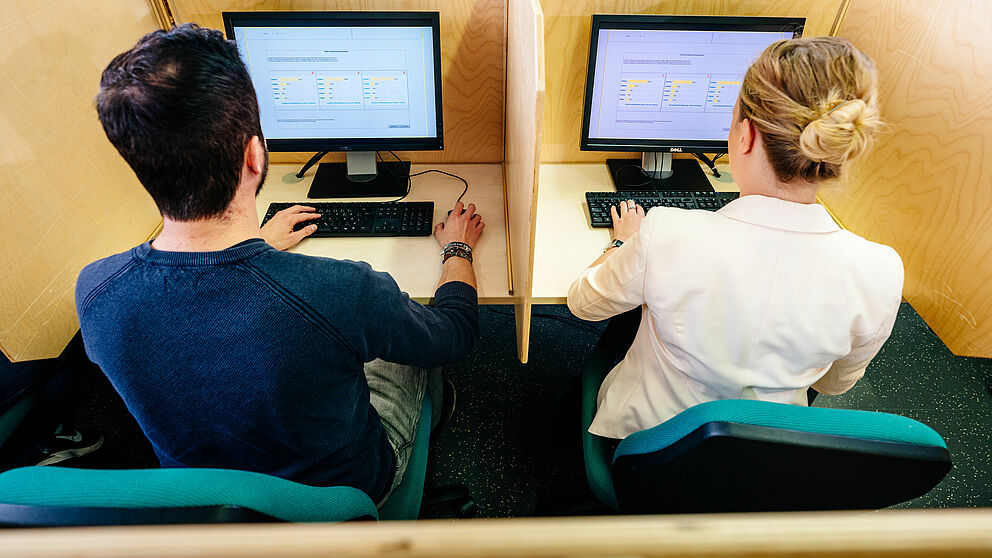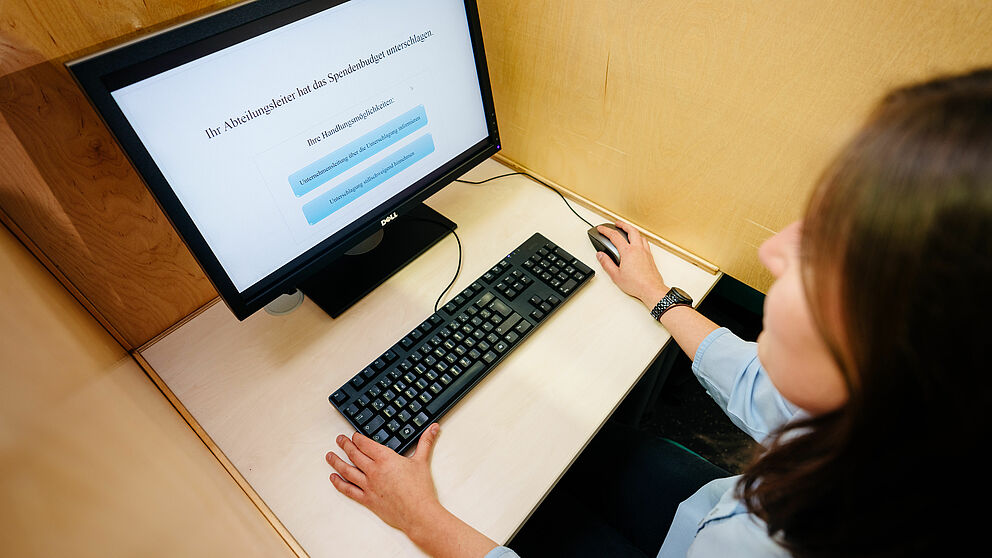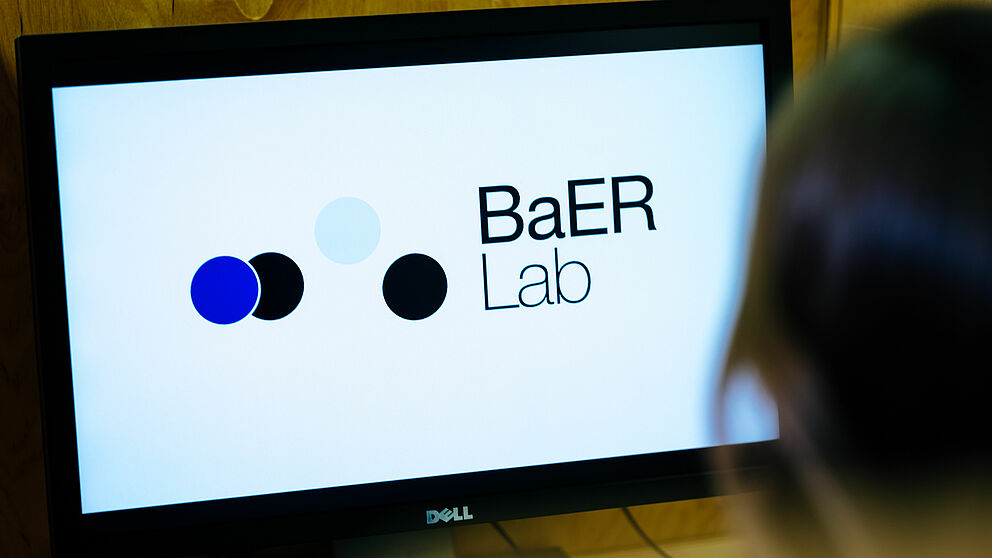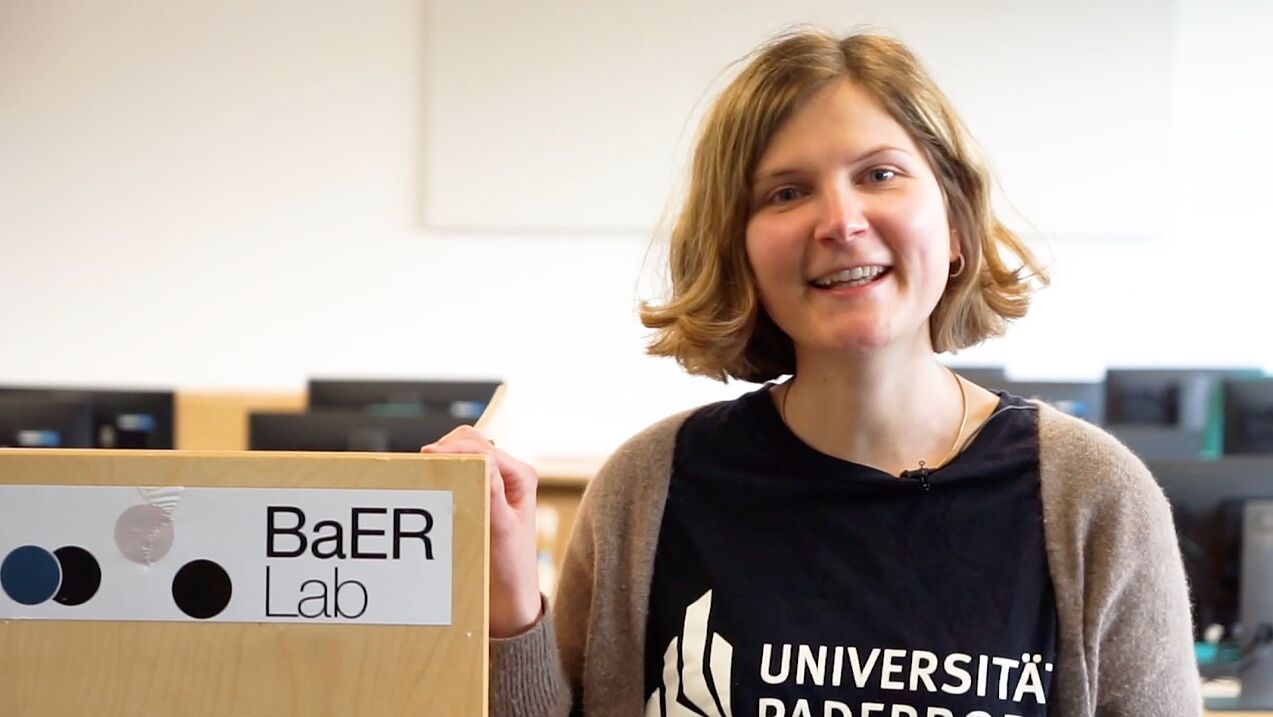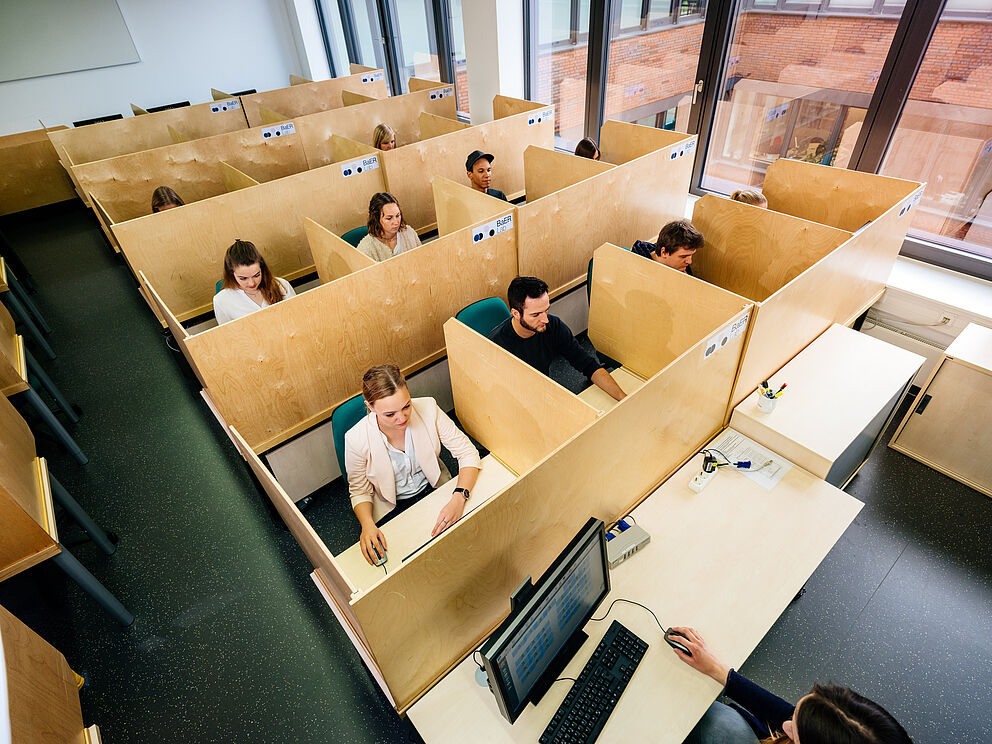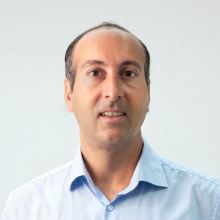Space for experimental economic research
The BaER-Lab stands for "Business and Economic Research Laboratory" and is the experimental laboratory of the Faculty of Business Administration and Economics at Paderborn University for researching economic issues. A laboratory experiment is a one- to two-hour event in which the participants registered for this experiment make decisions on the computer within the framework of a clearly defined specific economic situation. With its 35 computer workstations and a database of around 2,700 test subjects, the BaER Lab is one of the largest economic experimental laboratories in the German-speaking world.
Main research areas
Become part of the research and earn money on the side!
In principle, anyone can take part in the experiments, regardless of age, subject or profession. As a rule, no special prior knowledge is required. A laboratory experiment is a one- to two-hour event in which the participants registered for this experiment make decisions within the framework of a clearly defined specific economic situation. All participants receive a real payout. The payouts depend on the respective experiment and the decisions made by you and the other participants. The average payout in the experiment is usually based on the remuneration for a student job in higher education. The money is paid out in cash immediately after the end of the experiment.
To participate, all you have to do is register for our participation pool. As soon as an experiment is carried out, you will receive an invitation email. If you have time and are interested, confirm the invitation and choose a date.
Donation overview
In this section, as a BaER-Lab participant, you will find confirmation that the respective donation amount, which was raised by the decisions of the participants in the corresponding session of the experiment, has been transferred to the respective donation organisation.
Here you will find the transfers of the donations to Go Ahead! that were collected in the experiments of 15.08.2023(10:30).
More about experimental economic research
Experimental economic research is a research method that analyses economic theories, models and questions with the help of controlled laboratory experiments. Such a laboratory experiment is a one- to two-hour event in which the participants registered for this experiment make decisions within the framework of a clearly defined economic situation (usually on a computer). Depending on their own decisions and those of the other participants,
participants are rewarded financially at the end of the event. The anonymised data obtained in this way is then statistically analysed to investigate and answer economic questions.
There is hardly any data available on many economic issues. Data collection in real companies can often not be realised at all or only with great effort. This poses problems for empirical research. In addition, new theoretical approaches cannot be implemented directly in companies without prior testing or validation without running the risk of suffering economic damage. With controlled experiments, on the other hand, it is possible to test new theories on a smaller scale first and to better isolate and control the factors influencing the results. Experimental findings also often contribute to the further development of existing theories. Conducting economic experiments is therefore an important and established research method, the recognition of which was further increased in 2002, not least with the Nobel Prize in Economic Sciences awarded to Daniel Kahneman and Vernon Smith for their work in the field of experimental economic research.
The history of experimental economic research goes back to the early 1960s. Almost simultaneously, scientists in the USA and Germany began to conduct experiments under controlled conditions. One of the first experiments took place as part of a lecture. It was discovered that relatively simple rules could be used to simulate real market situations and observe the adjustment of the theoretically predicted market equilibrium. In addition, many of the experimental findings contradicted the image of man as homo oeconomicus that is common in economics, which assumes that man always rationally maximises his own benefit. In contrast, the experiments clearly showed that individuals in certain economic situations do not make rational decisions due to distortions in perception and that motives such as fairness also influence behaviour.
Approach
The laboratory is located in the building complex Q on the main campus of Paderborn University
Paderborn University
Q2.203
Warburger Straße 100
33098 Paderborn
Recommendations for travelling by train and public transport(PaderSprinter):
You can reach Paderborn University within a few minutes from Paderborn Central Station using the following bus routes:
- Line 4 direction Dahl (bus stop Uni/Südring)
- Line 9 direction Kaukenberg (bus stop Uni/Südring)
- Line 68 in the direction of "Schöne Aussicht" (bus stop Uni/Schöne Aussicht)
- Line UNI in the direction of Universität (only during the lecture period)
